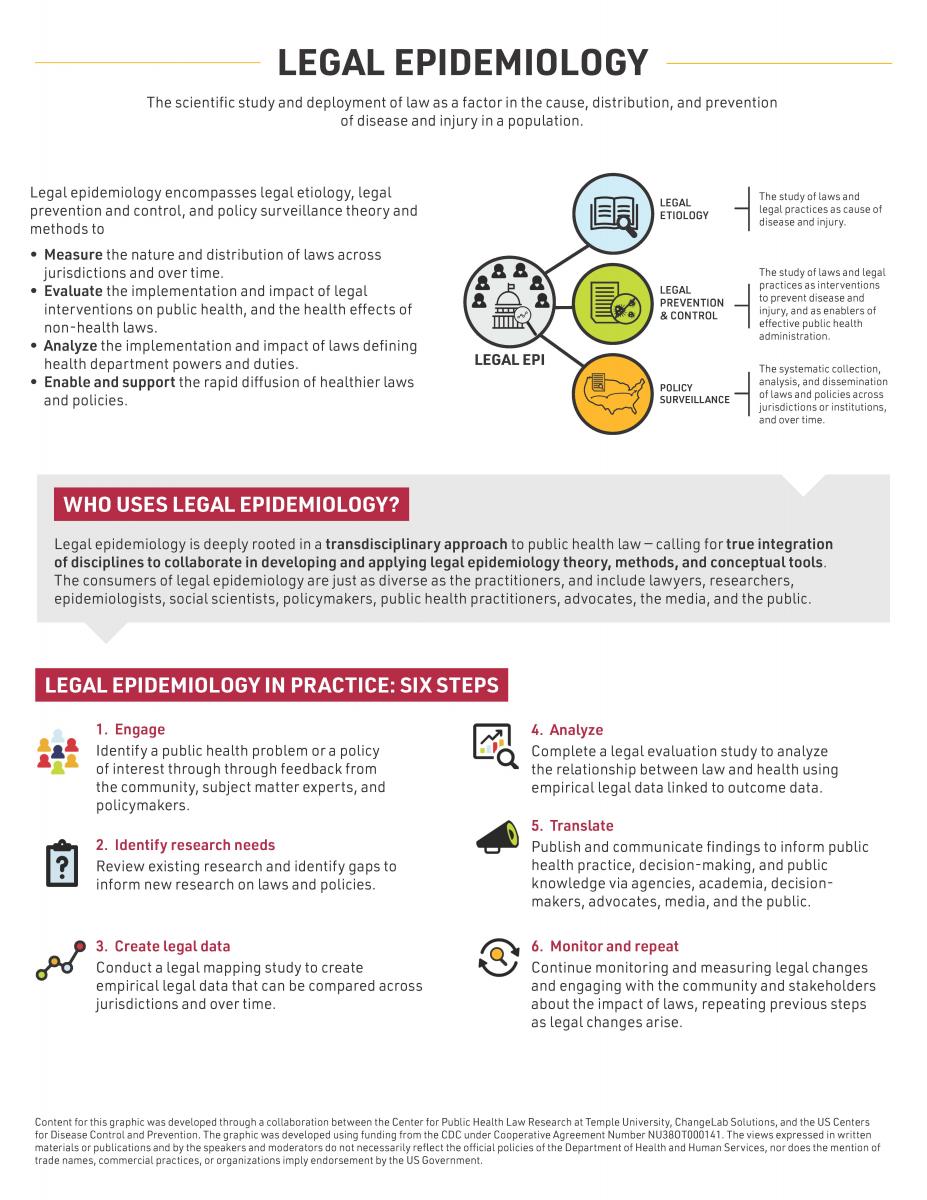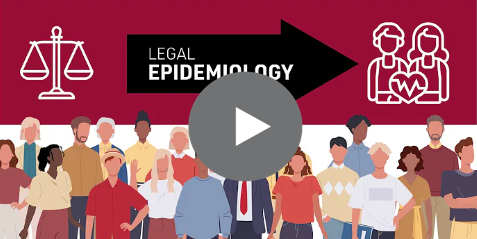What is legal epidemiology?
Legal epidemiology is the scientific study of law as a factor in the cause, distribution, and prevention of disease and injury in a population.
Law is an essential building block of public health. Legal epidemiology supports public health research and practice by identifying successful and harmful policies and guiding policy innovation for the future. The problem is that law and policy are consistently underexplored and under-evaluated. Legal interventions affecting individuals and communities of all kinds, around the world are often not scaled or evaluated for years, if at all. Innovations that show promise in research or practice do not spread, or they spread too slowly.
The transdisciplinary field has emerged over the past 50 years to support public health law practice through legal prevention and control, legal etiology, and policy surveillance.
People working in legal epidemiology are lawyers, economists, criminologists, sociologists, anthropologists, psychologists – and epidemiologists. We're people who want to bring to bear the best of the scientific method and the best understanding of how law works to figure out how laws and legal practices influence public health.
Legal epidemiology generates data and evidence that can inform policy initiatives in order to advance health, well-being, and equity. Legal epidemiology methods may be applied to any area of law or policy relevant to the public’s health and well-being. The Center teaches and collaborates with researchers and practitioners on a broad portfolio of topics, including mitigation policies related to COVID-19, reproductive health, drug policy, housing and environmental health, workforce development, and public health policymaking, among many others.
Here at the Center for Public Health Law Research, it’s our mission to build legal data and tools, advance and teach legal epidemiology methods and theory, and broadly share and translate evidence to support practice.


